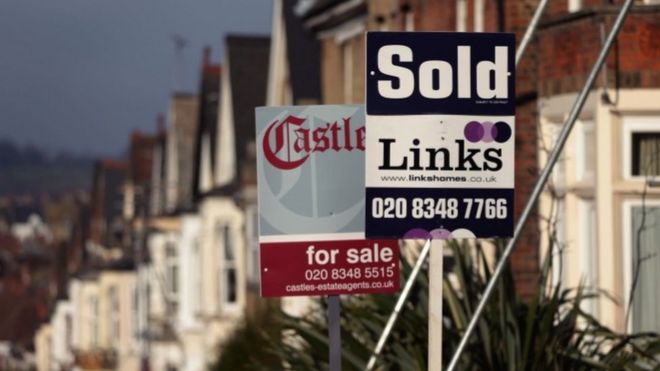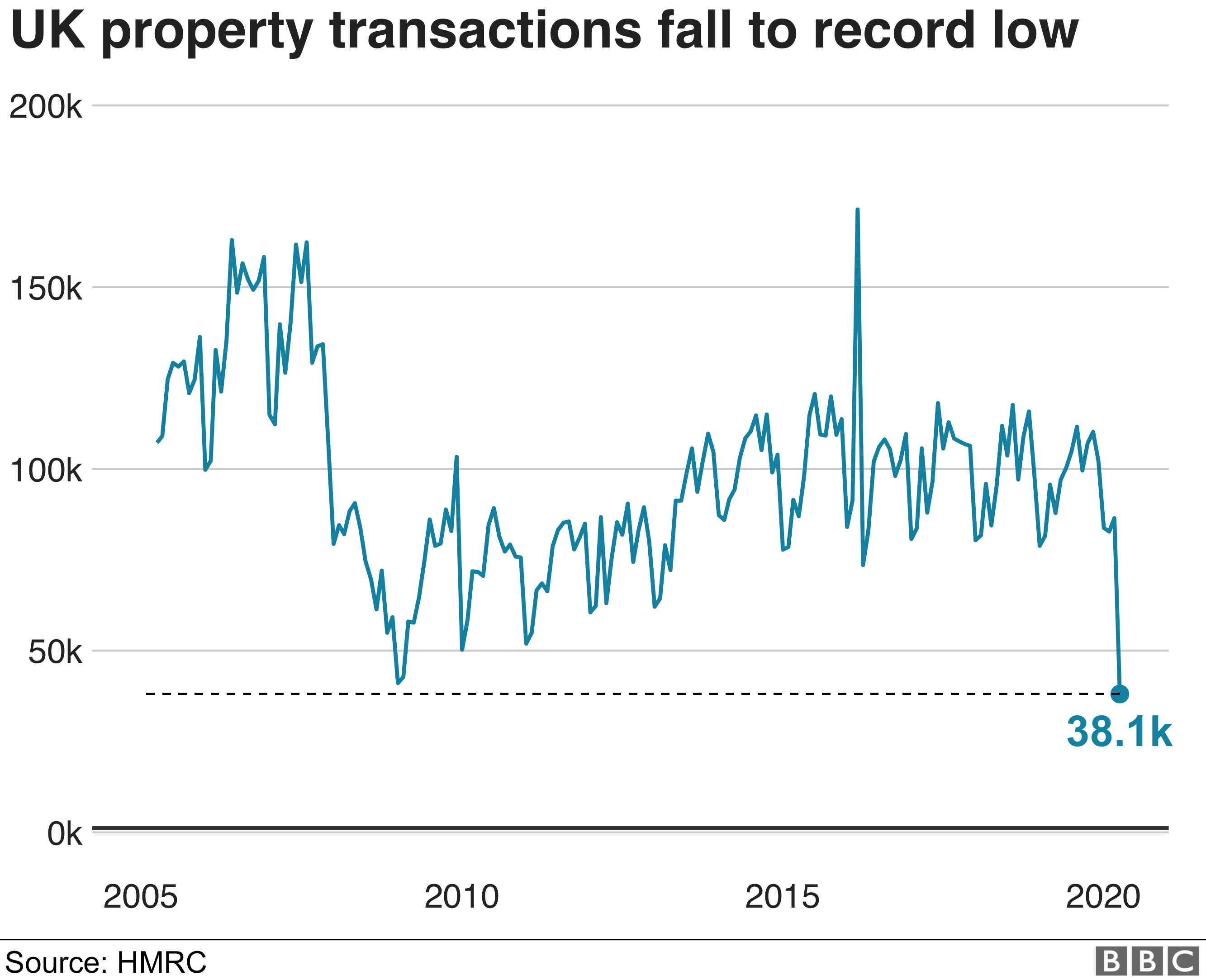
Demand from property hunters rebounded as curbs on the sector were lifted in England – but the trend may be short-lived, analysis suggests.
Buyer demand rose by 88% in the week estate agents were told they could resume viewings and people could move again, property portal Zoopla said.
However, actual sales remained sluggish, and the analysis suggests demand could fall again.
A tough outlook for jobs could affect people’s ability to move home.
For those who do still have the money to move, Zoopla echoed others in suggesting residents may have spent lockdown rethinking what they want from their home.
Another property portal, Rightmove, reported a return to pre-crisis levels of browsing and enquiries from people looking to buy or rent a home at the point restrictions were lifted in England on 13 May.
Now, Zoopla’s UK Cities House Price Index has said that the rebound in demand went beyond the level seen at the start of March.
Portsmouth, Southampton, Oxford, Liverpool and Manchester all saw demand rise.
Different markets
This trend was far more muted where the restrictions remained – in Scotland, Wales, and Northern Ireland – and also in London, where the market had already been relatively slow.
The analysis found the rebound would be temporary, after people who had been stuck at home and thinking of moving met with the realities of less settled job prospects.
“Many households are likely to have re-evaluated what they want from their home. This could well explain the scale of the demand returning to the market,” said Richard Donnell, director of research at Zoopla.
He said economic uncertainty was building and that would eventually lead to greater caution among buyers and sellers.
A small survey, as part of the research, found that 41% of those asked had put moving plans on hold owing to the uncertainty, loss of income, or future prospects for their finances.

Lockdown had meant thousands of people put house sales on hold.
Residential property sales in the UK in April hit their lowest monthly level since comparable records began in 2005, with 38,060 transactions during the month, according to provisional numbers from HM Revenue and Customs (HMRC).
This was less than half the level seen in the same month the previous year.
Great uncertainty remains over the level of recovery in sales, as well as prices


